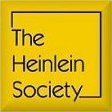|
|
|
- Ginnie Matuchek
- (Also called Ginnie Graylock) Character in Poul Anderson's fantasy novel Operation Chaos. She is a witch, married to werewolf Steve Matuchek. The novel stitches together four episodes in which the couple battle various evil supernatural beings.
- "Mary O'Meara"
- Song written by science-fiction author Poul Anderson for his novel World Without Stars. In the novel, the crew of an Earth starship are stranded in the midst of a war between distant words. Their captain, Hugh Valland, strengthens their resolve to continue the struggle to return home by singing to them of his love, Mary O'Meara, who is waiting for him back on Earth.
- Polesotechnic League
- In various stories and novels by science-fiction author Poul Anderson, a group of laissez-faire interstellar traders. The books in which the League appears include Trader to the Stars (1964), The Trouble Twisters (1966), Satan's World (1969), and Mirkheim (1977). The Earth Book of Stormgate (1978) includes a detailed chronology of the League.
- Gabriel
- In the Biblical book of Daniel, Gabriel was the heavenly messenger sent to Daniel. In the Gospel of Luke, he announced the birth of John the Baptist to Zechariah and told Mary that she was chosen to become of the mother of God.
- Michael
- In the Old Testament, the archangel Michael is the warrior leader of the heavenly hosts and the guardian of Israel; in more modern legends he is sometimes confused with St. George, slayer of the Satanic dragon. In Islamic legend, Michael is the provider of food and knowledge.
- Camelot
- The legendary site of King Arthur's court. Since there is much disagreement on whether King Arthur actually existed, Camelot is generally believed to be only a legend. Various sites in Britain, however, are identified with it, including Caerleon, Monmouthshire, Wales, and, Cadbury Castle, Somerset, England.
- Biochemistry and Human Metabolism
- Textbook co-authored by Burnham S. Walker, William C. Boyd, and Isaac Asimov; published by Williams & Wilkins (Baltimore MD) in 1952, with later editions in 1954 and 1957. [Library of Congress call number QP514.W27]
- Susan Calvin
- Protagonist of many of the "robot" stories by science-fiction author Isaac Asimov. She invented the positronic brain that made it possible to construct robots approaching the cognitive abilities of humans.
- Lucky Starr
- Hero of a series of juvenile space-opera novels written by Isaac Asimov under the pen name Paul French.
- "Nightfall"
- This story, published in 1941, is considered by many to be the finest science-fiction short story ever written. It describes a planet in a multi-sun system, on which total darkness has never occurred in the history of civilization, and the social and psychological effects of an impending "total sunset".


